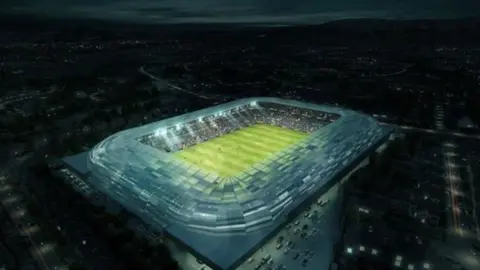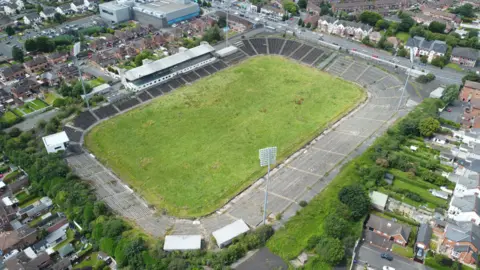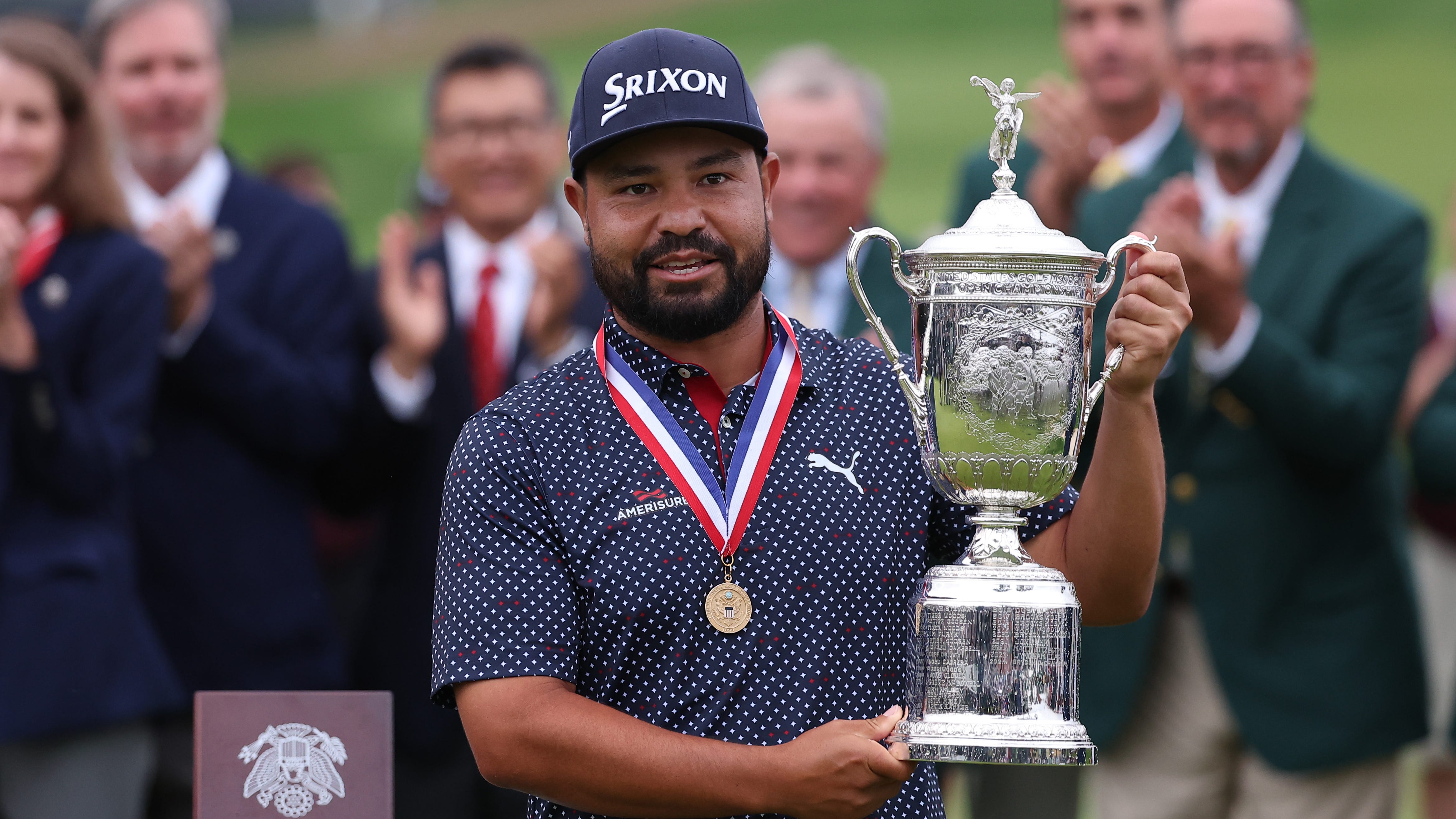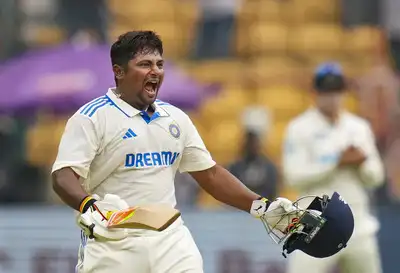 GAA
GAA The chances of Northern Ireland hosting matches at the Euro 2028 football tournament appear to have gone.
The UK government announced on Friday night that the estimated cost of rebuilding Casement Park stadium in Belfast has “risen dramatically” to more than £400m.
The government said it will not be providing funding to redevelop the stadium in time for the tournament.
It said there was a “significant risk” that the stadium would not be built in time.
The announcement was made in a joint letter from NI Secretary Hilary Benn and Sports Minister Lisa Nandy to Stormont Minister Gordon Lyons, who is in charge of sport in Northern Ireland.
In the letter, Benn and Nandy said: “The estimated build costs have risen dramatically – from £180m when the EURO 2028 bid was awarded in October 2023 to potentially over £400m – and there is a significant risk that it would not be built in time for the tournament.
“We have therefore, regrettably, decided that it is not appropriate for the UK government to provide funding to seek to build Casement Park in time to host matches at EURO 2028.”
In a statement, Communities Minister Gordon Lyons says his department is “committed to the 2011 agreement with the GAA for a GAA stadium”.
He added that he will work with the UK government and other stakeholders to “ensure that there is a lasting legacy for football in Northern Ireland”.
In order to be ready for the 2028 tournament, Casement Park needs to be rebuilt by the summer of 2027.
With no funding package in place, that now seems impossible.
Northern Ireland could have some role as a training base or host warm-up matches at the existing Windsor Park stadium, but the dream of hosting tournament fixtures appears to be over.
Plans have been in place to build a new stadium at Casement Park since 2011.
The initial estimated cost of rebuilding Casement was £77.5m, with £62.5m coming from the Stormont executive and £15m from the Gaelic Athletic Association (GAA).
That was more than a decade ago, and since then costs have risen dramatically.
To try to cater for soccer as well as GAA matches increased the cost further, as UEFA requires a higher specification of stadium.
Although hopes of being part of the Euro 2028 tournament may be over, it does not mean the stadium cannot be rebuilt for the GAA, which was the original purpose.
However, that will not be cheap either, and the GAA will be hoping that even though the UK government has said it will not be funding a Euro 2028 compliant stadium, it may still contribute to the redevelopment whenever it happens.
The Irish government has already pledged more than £40m.
‘Almost no progress’ since Euro announcement
Benn and Nandy’s letter stated: “The government has always been committed to ensuring that Northern Ireland could host the Euros if there was any way to achieve that.
“And so, when we took office in July, we said that we would swiftly, but fully, analyse whether Casement Park could be successfully completed to the required UEFA timelines and in line with their minimum requirements.”
The letter added that the risk of the stadium not being completed in time was due in part to “almost no progress” having been made in the period between the Euro game being awarded to Belfast and the election of the new government.
“This has been a very difficult decision to make, given our belief in the Euro 2028 partnership, but it is the only way forward in the circumstances,” the letter added.
Analysis: Political football ends
Negotiations on funding for Casement Park had long been in extra time, but the government has blown the final whistle on Euro 2028 happening in Belfast.
It was of course the Conservatives who passed this particular political football to Labour when they won the general election some two months ago.
However, the now-infamous quote that we’ll hear again in the days to come was then Secretary of state Chris Heaton-Harris saying in 2023: “Don’t you worry, we’ll get the money”.
From that moment an expectation was set, but for months there had been a growing sense that the money would not be coming.
The Labour government in its latest letter – pushed out on a Friday night after evening news programmes had ended (which will prompt its own questions) – makes clear the cost now is too big and the timetable too short.
Both the redevelopment’s biggest cheerleaders and those in unionism who less willingly backed the project can now point the finger of blame at Number 10 for Northern Ireland missing out on hosting part of the tournament.
Those who feel an own goal in economic and sporting terms has been scored will make their voices heard in the days ahead.
But anger and frustration won’t change the fact that the dream of Euro 2028 matches in Belfast appears to be over, with the stadium’s future still far from clear.
 PA Media
PA MediaSinn Féin deputy leader Michelle O’Neill says the announcement is “deeply disappointing” and represents a “missed opportunity for sport and our economy”.
“Casement Park will be built,” she said. “It’s an Executive commitment, and something that both the British and Irish governments have committed to,” she said.
“We will continue to work with the GAA, our local executive and the two governments to push this project forward and get these state-of-the-art facilities built and a first-class stadium for Gaelic games delivered.
“Hilary Benn has said clearly that Casement Park will be built, so I would urge his government to honour the commitments they’ve made and let’s get it built.”
Where is Casement Park?
In west Belfast, just a stone’s throw from the busy M1 motorway heading south out of the city, is where you’ll find the site put forward to host one of the world’s biggest sporting tournaments.
It first opened in 1953 as a stadium for Gaelic games, and has been the home of Antrim GAA since its inception. The official capacity was just more than 31,000, although three-quarters of the ground was terracing.
However, there have been no visitors to Casement in more than a decade and, for years, any passing motorists able to crane their neck into the ground would only see a derelict husk.
In February, clearance work finally began at the site in preparation for the new stadium – but it’s still unclear when, or even if, that will happen.







